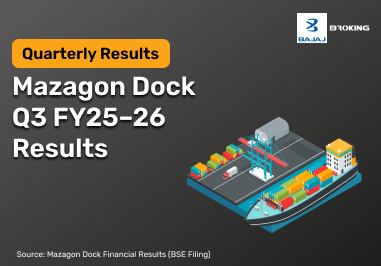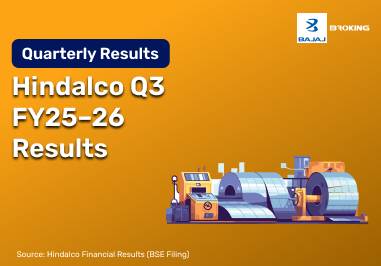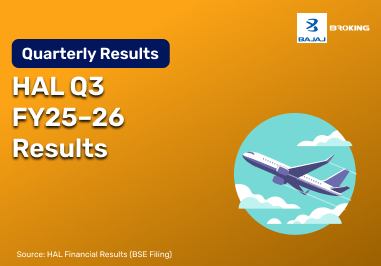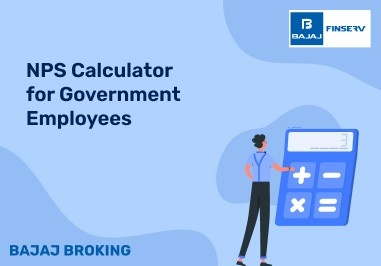Fixed income mutual funds are investment vehicles that primarily focus on investing in government bonds, corporate bonds, and other fixed-income securities. These funds aim to provide investors with steady returns through regular interest payments from the securities in their portfolios. By investing in fixed income mutual funds, investors can benefit from relatively lower volatility compared to equity investments, making them a popular choice for risk-averse individuals. These funds also offer diversification opportunities by pooling capital to invest in a variety of fixed-income assets.
Features of Fixed Income Mutual Funds
Consistent Returns: Fixed income mutual funds provide stable returns by investing in low-risk, debt-based securities such as government bonds and corporate debt.
Lower Volatility: Unlike equity funds, fixed income funds experience less market volatility, making them ideal for conservative investors seeking more predictable returns.
Diversification: These funds invest in a mix of different debt instruments, providing a diversified portfolio that helps reduce overall investment risk.
Liquidity: These funds offer easy access to your investment by allowing investors to quickly buy or sell units, providing the flexibility needed to address immediate financial needs or opportunities.
Regular Income: Fixed income funds are designed to generate consistent interest income, which can be beneficial for meeting long-term financial goals or immediate income requirements.
Lower Risk Exposure: By focusing on bonds and other debt instruments, these funds tend to carry lower risks compared to equity-based investments.
Tax Advantages: Investors in fixed income mutual funds may benefit from favorable tax treatment depending on their holding period and the type of income generated.
Flexibility: These funds can be tailored to suit different investment horizons, from short-term needs to long-term financial goals, providing flexibility for various investors.
Professional Management: Fixed income mutual funds are actively managed by experienced fund managers who make investment decisions based on current market conditions.
Components of Fixed Income Funds
Debt Instruments: Fixed income funds invest in government bonds, corporate bonds, and other debt securities, focusing on generating steady interest income.
Money Market Instruments: These funds may also include short-term instruments like Treasury Bills and commercial paper, which provide liquidity and lower risk.
Bonds: Fixed income mutual funds typically hold bonds, which pay regular interest and offer capital preservation over time.
Treasury Bills: These are short-term debt securities issued by the government, commonly included in fixed income funds for their low risk and liquidity.
Debentures: Corporate debt securities, or debentures, are another key component of fixed income funds, providing higher returns compared to government securities.
Repurchase Agreements (Repos): Some fixed income funds invest in repos, which involve short-term borrowing and lending agreements, ensuring liquidity and low risk.
Credit Risk Management: Fixed income mutual funds actively manage credit risk by selecting securities based on the creditworthiness of issuers, ensuring stable returns.
Interest Rate Sensitivity: The value of securities in fixed income mutual funds is influenced by interest rate changes, which fund managers monitor closely to adjust investments.
Liquidity Management: Fixed income funds maintain liquidity to ensure that investors can redeem their investments quickly without significant price impacts.
Diversification: By investing in multiple types of debt instruments, fixed income funds spread risk and increase portfolio stability.
Different types of Fixed-Income Funds
Long-term Debt Funds
Fixed income mutual funds in this category invest in securities with longer maturities, providing investors with stable returns over an extended period. These funds are ideal for those seeking consistent income and less sensitivity to short-term market volatility.
Short-term Debt Funds
These fixed income funds invest in debt instruments with shorter durations, generally less than three years. These funds offer moderate returns and are less sensitive to interest rate changes, making them suitable for conservative investors looking for stability.
Floating Rate Funds
Fixed income mutual funds that invest in floating-rate bonds adjust interest rates periodically according to market conditions. These funds are ideal for investors looking to protect themselves from rising interest rates and provide a steady income.
Credit Opportunity Funds
These fixed income funds focus on investing in lower-rated corporate bonds that offer higher returns. While they carry higher credit risks, they may provide better returns than government securities and are suitable for risk-tolerant investors.
Gilt Funds
Fixed income mutual funds that invest exclusively in government securities, such as bonds issued by the central and state governments. These funds are considered low-risk and provide stable returns, making them suitable for risk-averse investors.
Liquid Funds
Fixed income funds that invest in short-term, highly liquid instruments like Treasury Bills and commercial paper. These funds offer quick access to your investment and are ideal for parking funds for short periods with minimal risk.
Dynamic Bond Funds
These fixed income mutual funds actively manage a portfolio of bonds with varying maturities. The fund managers adjust the portfolio’s duration in response to changes in interest rates, providing adaptability to shifting market conditions.
Risk Associated with Fixed Income Mutual Fund
Interest Rate Risk
Fixed income mutual funds are particularly susceptible to interest rate risk. When interest rates rise, the prices of existing bonds tend to fall, which can negatively impact the returns of these funds. Long-duration fixed income mutual funds are more vulnerable to such rate hikes, as the value of their underlying bonds is more sensitive to rate changes. For investors in fixed income mutual funds, it’s crucial to monitor interest rate trends, as rising rates can erode the portfolio’s value. However, short-term fixed income funds generally experience less impact from interest rate movements, reducing potential losses and ensuring that the investor's capital remains relatively protected.
Credit Risk
Fixed income funds also face credit risk, which occurs when the issuer of the bonds in the fund defaults on its debt obligations. Corporate bonds or bonds from lower-rated issuers are particularly susceptible to this risk. If a company faces financial difficulties and cannot make timely payments, the value of the bonds in fixed income mutual funds can drop. This risk can be mitigated by investing in higher-rated bonds or government securities, but it remains a concern for funds that include lower-rated corporate debt. Regular credit assessments are vital for minimizing credit risk, allowing investors to make informed decisions and avoid financial loss.
Tax Implications of Fixed-Income Mutual Funds
When investing in fixed income mutual funds, understanding the tax implications is crucial. Tax is applied when the investment is redeemed. If the units are sold within 24 months, Short-Term Capital Gains (STCG) tax is applicable. However, if the units are held for more than 24 months, the gains are taxed as Long-Term Capital Gains (LTCG) at a rate of 12.5%, beyond the threshold limit. This structure allows investors to plan their tax obligations effectively.
Unlike traditional fixed income funds like fixed deposits, which are taxed annually, fixed income mutual funds are taxed only when redeemed. This tax treatment offers greater flexibility for investors, as they can control when they incur tax liabilities. For long-term investors, this can be advantageous, as it reduces the immediate tax burden compared to fixed deposits, which are taxed on earned interest every year.
Recent changes, such as the removal of indexation benefits, impact the taxation of fixed income mutual funds. This change reduces the potential tax relief investors previously received for long-term holdings. Despite this, fixed income mutual funds remain a favorable option for tax planning, offering steady income and predictable tax liabilities. However, investors should carefully assess the impact of these tax changes when making investment decisions, especially for long-term goals.
Key Considerations Before Investing in Fixed Income Mutual Funds
Set Your Financial Goals First
When investing in fixed income mutual funds, it is crucial to first set your financial goals. This allows you to determine the type of fixed income mutual funds that align with your investment needs, whether it is generating steady income or capital preservation.
Analyze Past Performance Carefully
Before investing in fixed income mutual funds, carefully analyze their past performance. This provides insights into how the funds have performed in various market conditions. Compare historical returns to assess the consistency and reliability of the fixed income mutual funds.
Consider Your Investment Duration
Your investment duration plays a key role when choosing fixed income mutual funds. Short-term investors may focus on funds with lower durations, while long-term investors can aim for funds that provide better returns over time.
Assess the Risks Involved
It is important to assess the risks involved in fixed income mutual funds. These funds come with risks like interest rate risk, credit risk, and liquidity risk, so understanding these factors is essential for making informed investment decisions.
Evaluate Costs and Expenses
The costs and expenses of fixed income mutual funds impact returns. The expense ratio, for instance, reduces your returns, so it's important to choose funds with lower fees for better results.
These extra fees can also add up, reducing overall investment growth. Evaluating all costs associated with a fixed income mutual fund will help you maintain a more profitable and efficient portfolio.
Final Takeaway
When considering investment options, fixed income mutual funds offer a more stable and predictable income stream compared to traditional equity investments. Understanding the tax implications, risks, and costs of fixed income mutual funds is essential. By evaluating these factors, investors can better align their portfolios with their financial goals and achieve steady returns from fixed income funds.
Do you have a trading account app or demat account app? You can open an account with Bajaj Broking in minutes. Download the Bajaj Broking app now from Play Store or App Store.















